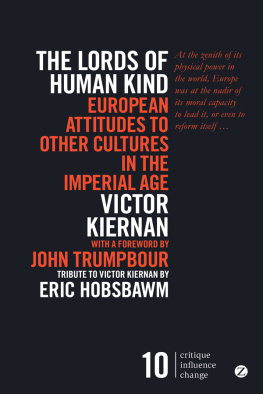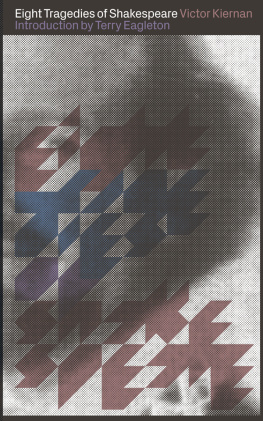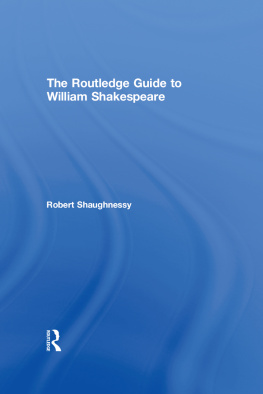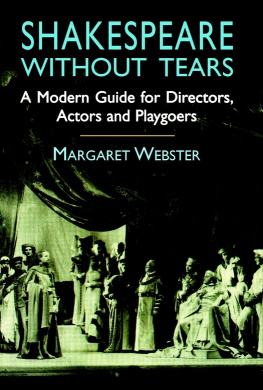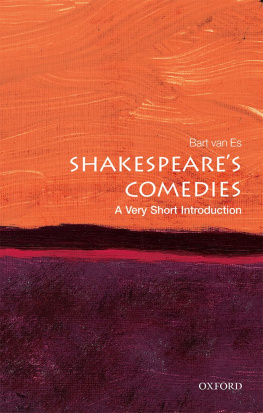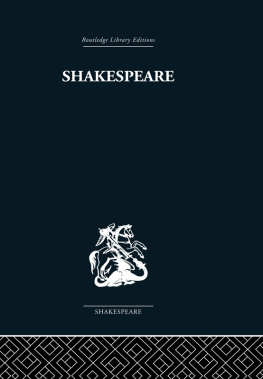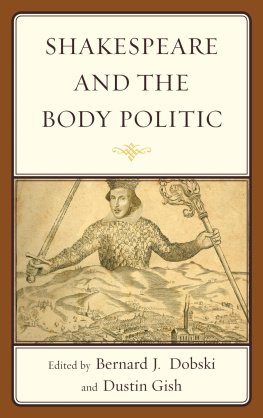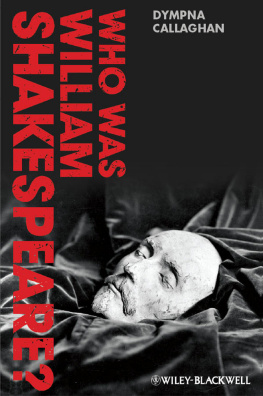
About Victor Kiernan
Victor Kiernan (19132009) ranks among Britains most distinguished historians. After a fellowship at Trinity College, Cambridge, and a long period spent teaching in India, he joined the History Department at the University of Edinburgh, where he served as professor of modern history from 1970 until his retirement. Over the course of his life he authored such works as Eight Tragedies of Shakespeare, The Lords of Human Kind, European Empires from Conquest to Collapse, The Duel in European History and numerous others, as well as translating two volumes of Urdu poetry.
Other works by Victor Kiernan available from Zed Books
Eight Tragedies of Shakespeare
The Lords of Human Kind: European Attitudes to Other Cultures in the Imperial Age
America: From White Settlement to Global Hegemony
SHAKESPEARE
Poet and Citizen
VICTOR KIERNAN
Introduction by Michael Wood

Shakespeare: Poet and Citizen was first published in 2016 by Zed Books Ltd, The Foundry, 17 Oval Way, London SE11 5RR, UK
This ebook edition was first published in 1993
www.zedbooks.co.uk
Copyright Heather Kiernan, 1993
Introduction Michael Wood, 2016
The right of Victor Kiernan to be identified as the author of this work has been asserted by him in accordance with the Copyright, Designs and Patents Act, 1988
Cover designed by Michael Oswell.
All rights reserved. No part of this publication may be reproduced, stored in a retrieval system or transmitted in any form or by any means, electronic, mechanical, photocopying or otherwise, without the prior permission of Zed Books Ltd.
A catalogue record for this book is available from the British Library
ISBN 978-1-78360-734-1 hb
ISBN 978-1-78360-671-9 pb
ISBN 978-1-78360-672-6 pdf
ISBN 978-1-78360-673-3 epub
ISBN 978-1-78360-674-0 mobi
Contents
Introduction
by Michael Wood
For many reasons this is an extraordinary book. Published when Victor Kiernan was eighty, it is the product of forty years reflection on Shakespeare and on the role of the artist in society; but of course it also rests on a lifetimes thinking about history by one of the great British historians of the twentieth century.
For my generation of students VGK was a path-breaker whose great book The Lords of Human Kind , a panoramic and deeply humane survey of power and race under imperialism, compelled us to see modern history in a fresh light, not least in the heart of our own European civilization. A Mancunian he was one of the most eminent alumni of Manchester Grammar School VGK belonged to that extraordinary generation of historians, including Christopher Hill, Rodney Hilton, E. P. Thompson and Eric Hobsbawm, who made British historiography dominant across the world in the 1960s. Looking back now it is no exaggeration to say that, even more than the Annales school in France, their impact has been global, and it still continues, shaping the way we understand social history but also literary studies too. All of them lived through the Depression and the rise of fascism, and all believed in Marxism as a tool to understand history, as well as a path to a more egalitarian world. Whatever the readers position on the legacy of Marxist thought today, reading this book he or she will have no doubt about the relevance of Marxs ideas to our understanding of historical process and cultural production. Put simply, it makes us see Shakespeare in a fresh and more realistic light.
Poetry was in VGKs blood from the beginning. A historian celebrated for his global vision and formidable analytical gifts, VGK was also a man of staggering linguistic accomplishments, with a wide knowledge of poetry in many languages. During his childhood in Manchester his father had been a translator working for the Ship Canal company, and the young VGK learned Spanish, French and Portuguese by the time he was eleven. At MGS he studied the classics and modern languages; during eight years in British India, he became fluent in Urdu and Persian too. He was an esteemed translator of Ghalib, Iqbal and Faiz. (A new edition of his Iqbal was published in Pakistan only recently, though aficionados will still treasure the lovely edition published by Kutub in Bombay in 1947.) VGKs interests in poetry then were very wide indeed one of his last publications was a study of his beloved Horace. But Shakespeare was his lifelong fascination, as surely he always must be to anyone who cares about the humanities; equally compelling to the lover of literature and the historian. In his eighties VGK produced two celebrated books, this one on the Histories and Comedies and Eight Tragedies (1996), also reprinted by Zed Books for the 400th anniversary of the poets death. Both books are rich in insight and still feel as fresh minted as when they first appeared.
The key idea of the book is the connecting threads between what Shakespeare wrote and the environment in which he lived. The problem of Shakespeare, VGK insisted, was not one for the literary historian alone. Since VGK wrote this book, many have agreed: the so-called New Historicists in particular have dominated discussions of cultural poetics in the Renaissance and of culture under capitalism, with scholars like Stephen Greenblatt voraciously digging into cultural milieux, social politics, and religious and sectarian allegiances to construct their psycho-histories of sixteenth-century people. In that, they were naturally strongly influenced by Marxism and especially by the British school mentioned above. But of course, stimulating as the debate has been, that is not the same as a book written by a professional historian who is also steeped in the poetry.
This book is unique in that it is the work of a great historian equally adept in literary theory, form and practice. In these pages VGK situates Shakespeare firmly in the Tudor age, in the belief that to understand his language, his meanings and his wider ambitions as an artist, we have to see him as a product of his age that is, a citizen. And, to use Hermann Brochs apt words on Virgil, it was a time of no longer and not yet. The poet was born only five-and-a-half years after the accession of Elizabeth, less than thirty years after the beginning of Henry VIIIs Reformation, during which time there had been four changes of state religion and the beginnings of a massive shift in landownership and wealth in England. So the poet was born into a world whose future was in no way clear and whose present was deeply conflicted. VGK sees it as a time of profound economic change and breakdown of the old agrarian order, with social unrest as enclosures spread and the landless and dispossessed wandered the roads of England vagrants are amply documented in town books of the time. In the historians eyes this is the gritty world of Tawneys Tudor Economic Documents or, to cite an example close to the poets home, Harry Thorpes famous micro-history The Lord and the Landscape , which showed how one Warwickshire family, the Spencers of Althorp, made it big enclosing common land for grazing in the sixteenth century, not far from Shakespeares Stratford.
This is the world of Shakespeare: as VGK shows, a citizen in a real world. The book has what is still a very sharp account of what we know about Shakespeares own life and background. Crucially, his mother was the daughter of a hundred-acre husbandman (that is, above the social rank of a labourer but below that of yeoman, let alone gentleman, despite their later claims to gentility!). His father too was a renting cultivator who rose to enter the aspiring middle class but was ruined in the deep economic crises of the late 1570s when the wool industry especially was hit hard. Everything discovered since VGK wrote bears out his acute analysis of the social stresses of this world of change; as he says, if there ever was a Merrie England it was not in William Shakespeares time. Indeed, reading this book one might wonder whether the poets obsession with history was in part born of nostalgia for the lost world of his parents and grandparents, the hierarchical world of old kings, noble lords and good friars now dissolving under the predations of the new rich under the Tudor monarchy. There, VGK suggests, for all his showbiz nous, and his playing to the audience, Shakespeare in his subtext gives us (as Hamlet says) the very age and body of the time his form and pressure.
Next page

